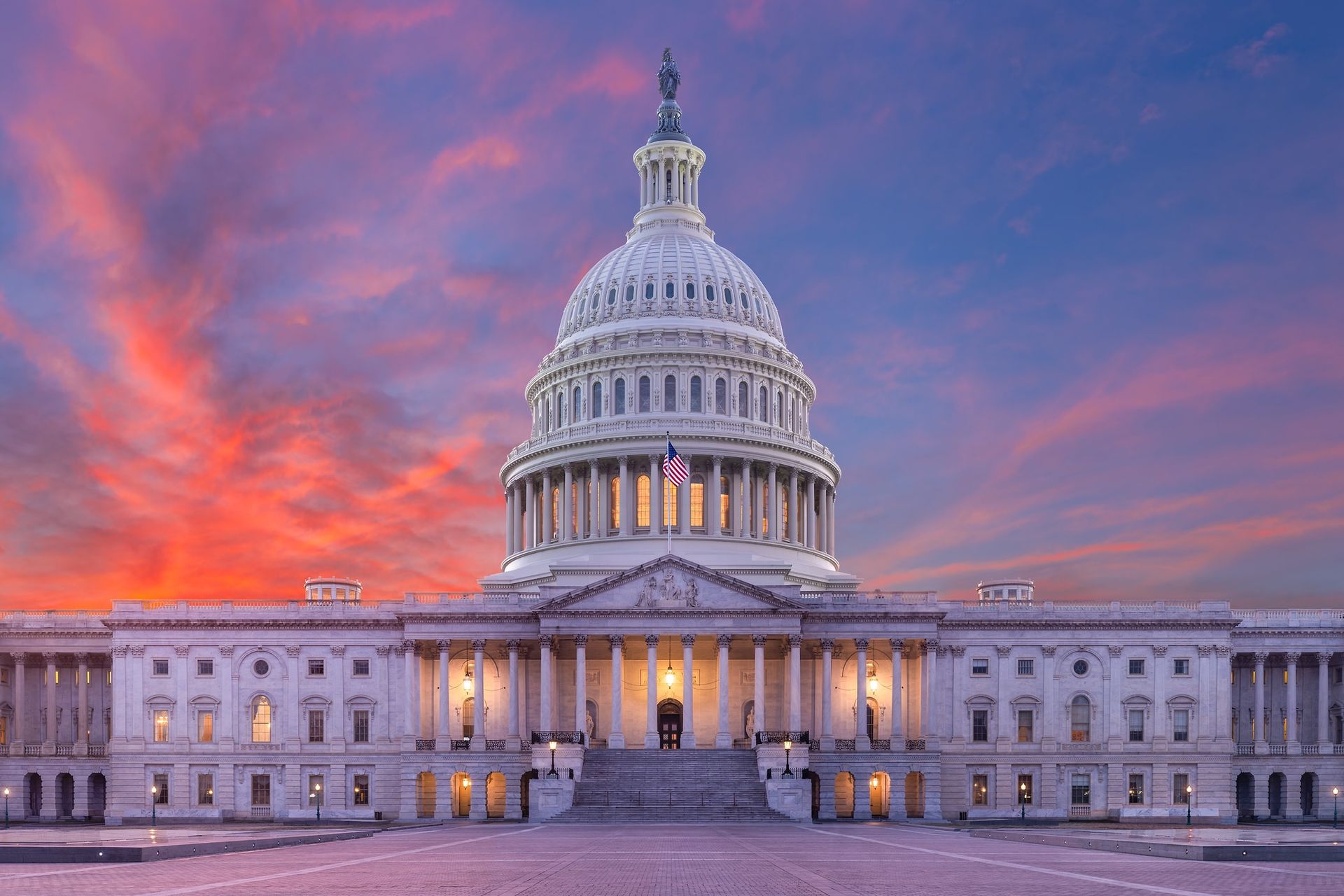Resolving family legal issues can be stressful and complicated. Emotions run high, and it can be difficult to see the matter clearly. You need objective legal counsel from an experienced family attorney. Call the Law Office of John Williams in Charlotte, NC. John Williams can assist you if you're filing for divorce. He also handles child custody and guardianship cases.
Arrange for a consultation with a divorce attorney in Charlotte, NC today.
Our Constitutional Republic
The Pernicious Influence of Corporate Money:
Time to Get Big Money Out of Politics

The Pernicious Influence of Corporate Money:
Time to Get Big Money Out of Politics
In the corridors of American power, where decisions shape the lives of millions, a shadowy force undermines the democratic process. Organizations like Americans for Prosperity, backed by billionaire interests such as the Koch brothers, pour vast sums into politics, funding candidates across the political spectrum. This practice turns elected officials into puppets, beholden to corporate agendas rather than the will of the people. While individualized ads promoting ideals may serve public discourse, direct campaign contributions and leveraged influence cross a dangerous line. It is imperative to remove money from politics and outlaw unchecked lobbying to restore integrity to our representative democracy. Constitutional and legal precedents provide a roadmap for such reforms, emphasizing the government's role in preventing corruption and ensuring fair representation.
Unveiling Americans for Prosperity and the Koch Brothers
Americans for Prosperity stands as a prime example of how billionaire funding distorts politics. Founded by petrochemical industrialists David and Charles Koch, this right-wing advocacy group pushes for limited government, deregulation, and free-market policies that often benefit corporate giants. The organization receives substantial funding from Koch Family Foundations, which provided over $12 million in its early years, alongside contributions from other conservative foundations. Koch Industries, the brothers' conglomerate, has funneled millions into political activities, including $40 million to Americans for Prosperity Action in recent cycles. This financial might allows AFP to influence elections through outside spending, totaling over $138 million in the 2024 cycle alone, primarily supporting Republicans while opposing Democrats. The Koch brothers' network has spent hundreds of millions on midterms, solidifying their role as puppet masters in American politics. By funding both sides of the aisle on select issues, they ensure policies align with their interests, regardless of party lines.
Bipartisan Funding: A Strategy of Control
The Koch-backed AFP does not limit its influence to one party; it strategically funds Democrats and Republicans to advance its agenda. For instance, AFP Action endorsed Republican Jeff Hurd in his successful bid for Colorado's 3rd Congressional District, congratulating him on his victory and aligning with his conservative stance. Similarly, the group has supported Republican Cory Mills, collaborating on health care initiatives and opposing legislation that threatens free-market principles. On the Democratic side, AFP has run ads supporting senators like Michael Bennett and John Hickenlooper, particularly on issues like fiscal restraint and deregulation, demonstrating a willingness to cross party lines for leverage. Even progressive figures like Ilhan Omar have been linked to this web, with AFP's broad spending influencing races that affect their priorities. This bipartisan approach is no accident; it allows corporate interests to hedge bets, ensuring access and influence no matter who wins. Such funding creates dependencies, where politicians prioritize donor demands over constituent needs, eroding public trust.
Constitutional Precedents: The Case for Regulation
The U.S. Constitution provides a foundation for curbing corporate money in politics, rooted in the need to prevent corruption and protect democratic integrity. The First Amendment safeguards free speech, but the Supreme Court has long recognized that unlimited campaign spending can corrupt the political process. In Buckley v. Valeo (1976), the Court upheld contribution limits to candidates, affirming the government's compelling interest in "the prevention of corruption and the appearance of corruption spawned by the real or imagined coercive influence of large financial contributions." This precedent establishes that regulations on money in politics are constitutional when they combat quid pro quo arrangements, precisely the leverage exerted by groups like AFP.
Prior to the controversial Citizens United v. FEC (2010), which equated corporate spending with free speech and struck down bans on independent expenditures, the Court supported stricter controls. In Austin v. Michigan Chamber of Commerce (1990), overruled by Citizens United, the justices upheld a state ban on corporate independent expenditures, reasoning that corporations' "unique state-conferred corporate structure" allows them to amass wealth that distorts elections. This decision highlighted the danger of corporate dominance, a concern echoed in McConnell v. FEC (2003), where the Court sustained the Bipartisan Campaign Reform Act's soft money ban to prevent parties from becoming vehicles for corporate influence. These cases underscore that the Constitution permits, and indeed requires, measures to level the playing field.
Citizens United itself, while expanding corporate rights, left room for reform. Dissenting opinions, like Justice Stevens', argued that the majority ignored historical precedents treating money as distinct from speech, warning of "corporate capture of democracy." Post-Citizens United rulings, such as Arizona Free Enterprise Club's Freedom Club PAC v. Bennett (2011), struck down public financing triggers but reaffirmed the validity of contribution caps. Moreover, in FEC v. Colorado Republican Federal Campaign Committee (2001), the Court allowed limits on coordinated party expenditures to avoid circumvention of contribution laws. These precedents collectively support overturning Citizens United and reinstating bans on corporate contributions, ensuring elections reflect the people's voice, not billionaire whims.
Outlawing Lobbyists: Legal Grounds for Eradication
Lobbying, often the conduit for corporate leverage, must face outright prohibition to dismantle this system. While the First Amendment protects the right to petition government, regulations have been upheld when they prevent abuse. In United States v. Harriss (1954), the Supreme Court sustained the Federal Regulation of Lobbying Act, requiring disclosure to combat "abuses incident to the practice of lobbying." This precedent validates stringent controls, including bans, if they serve anti-corruption goals without unduly burdening speech.
Building on this, the Lobbying Disclosure Act of 1995 and Honest Leadership and Open Government Act of 2007 impose registration and ethics rules, but fall short of elimination. Legal scholars argue for a complete ban under the framework of NAACP v. Alabama (1958), where associational rights yield to compelling state interests like transparency. AFP's $1.15 million in lobbying expenditures in 2024 exemplifies how such activities translate contributions into policy sway. By outlawing lobbyists, we align with precedents prioritizing electoral purity over unlimited influence, as seen in the Court's approval of aggregate contribution limits in McCutcheon v. FEC (2014), before they were partially struck down. A ban would prevent the puppet-master dynamic, fostering a government responsive to citizens.
The Broader Implications: Safeguarding or Republic
The Koch brothers' empire, through AFP, illustrates the rot at democracy's core. Their funding of figures like Hurd, Mills, Bennett, and Hickenlooper ensures policies favor deregulation and corporate tax breaks, often at public expense. This bipartisan infiltration demands action: public financing of elections, as upheld in Buckley, and disclosure mandates from McConnell. States like those with corporate contribution bans provide models, surviving scrutiny under Beaumont v. FEC (2003).
Reclaim Our Republic
Corporate money, exemplified by AFP and the Kochs, corrupts our system, turning representatives into servants of the wealthy. By invoking precedents like Buckley, Austin, and Harriss, we can enact reforms to ban contributions and lobbying. This is not about silencing speech; it is about amplifying the voices of everyday Americans. Demand transparency, support campaign finance overhaul, and vote for leaders unbound by billionaire strings. Our Constitution envisions a government of the people; it is time to make it reality.
